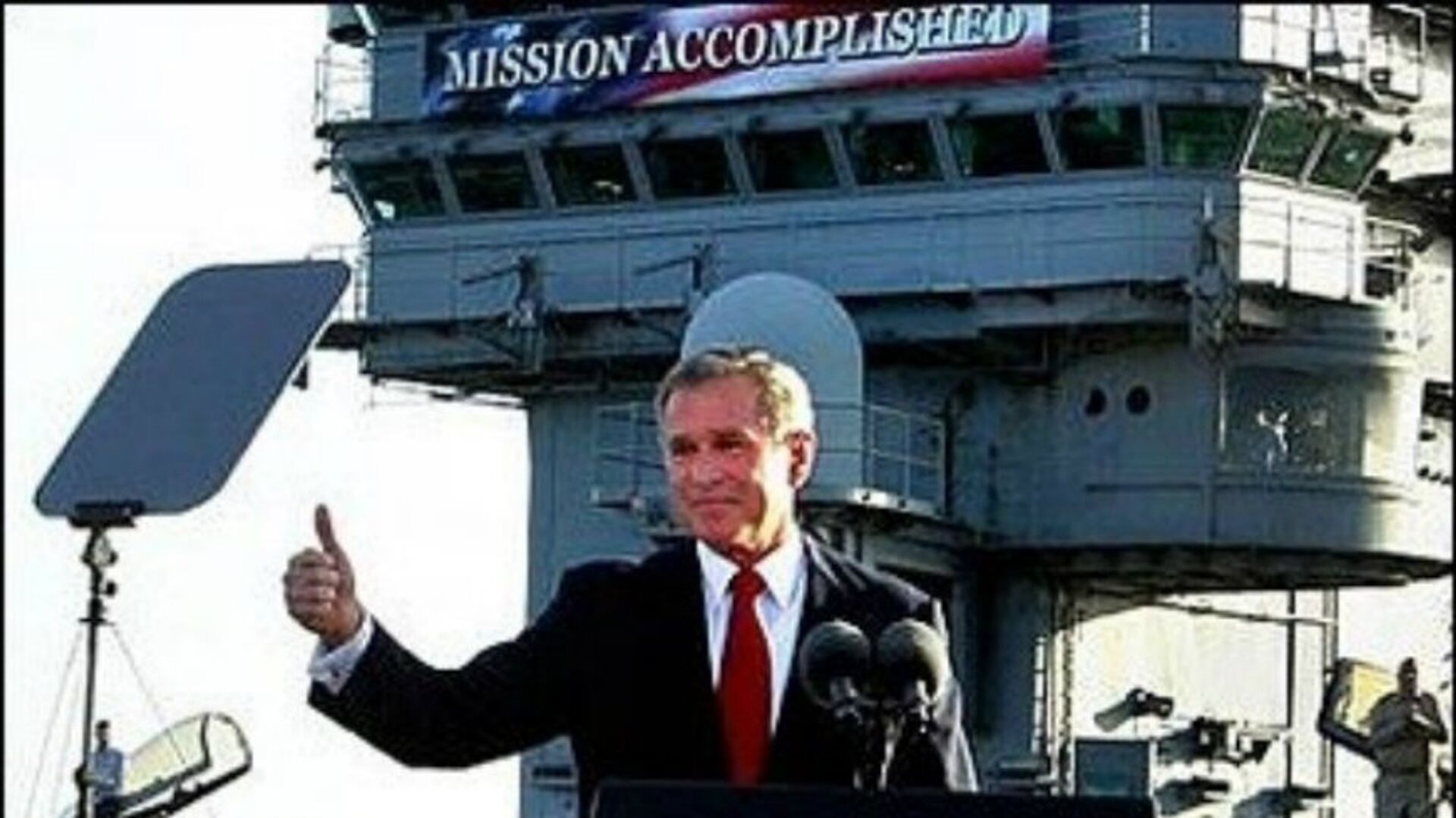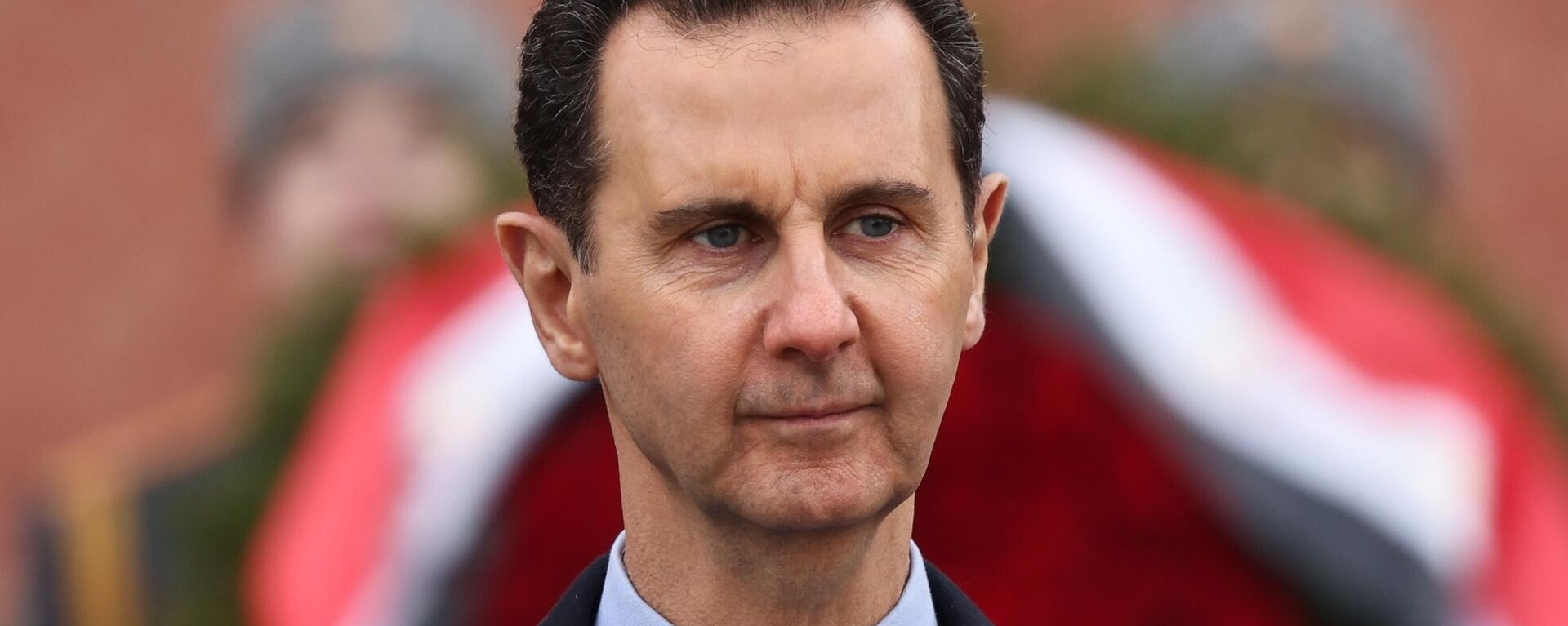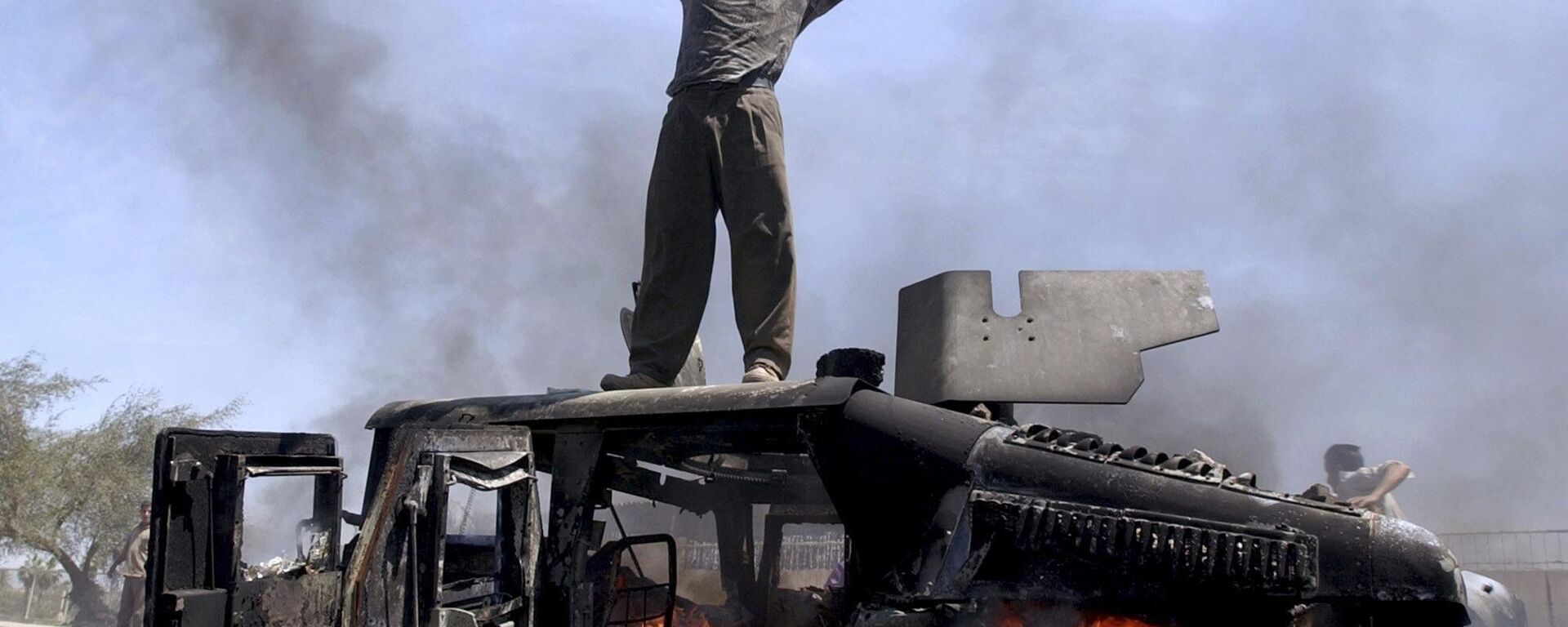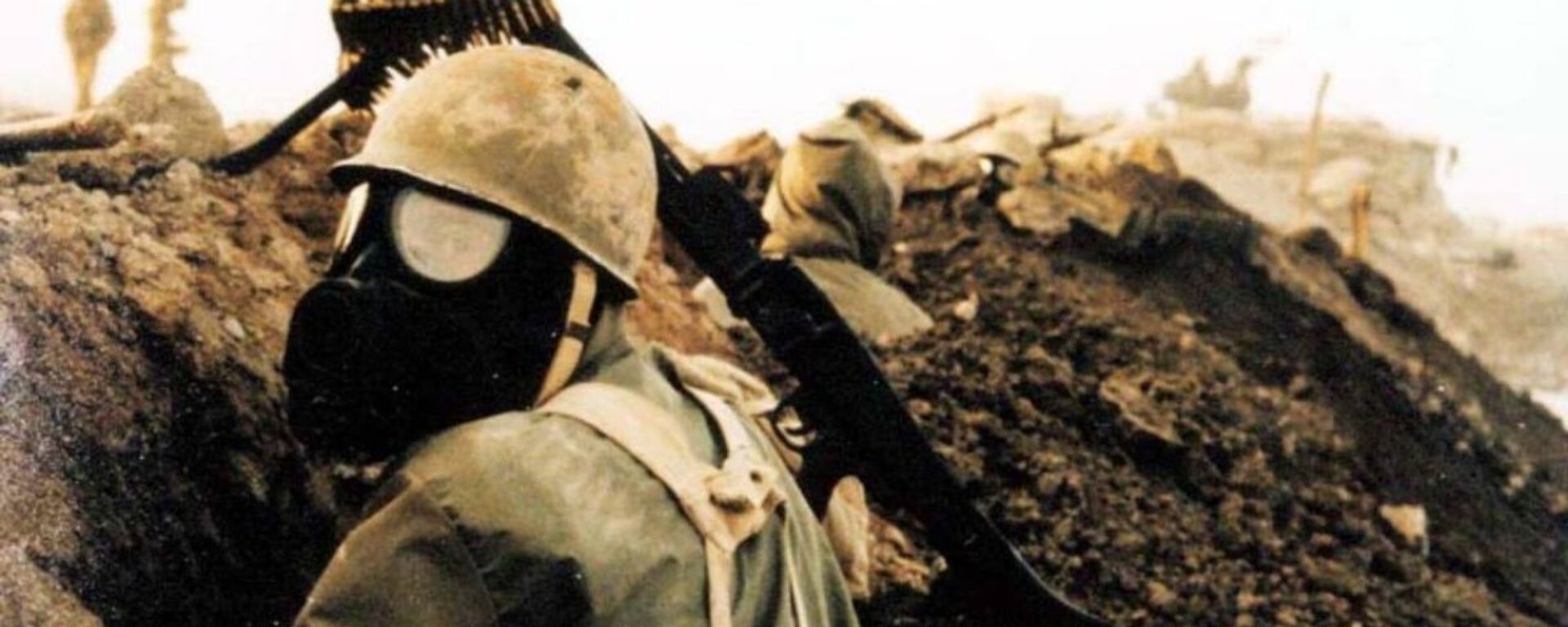Twenty Years Later, US Still Struggling With Anarchy Unleashed by Iraq Invasion
02:25 GMT 20.03.2023 (Updated: 03:48 GMT 20.03.2023)

© Flickr / mashroms
Subscribe
WASHINGTON (Sputnik) - Rather than impose a Western-aligned order in the Middle East, as neoconservatives and neoliberals had hoped, the US-led invasion of Iraq ushered in a new era of international terrorism and lawlessness that is expanding across the globe and continues to threaten American interests, experts told Sputnik.
On March 19, 2003, at 10:16 p.m. EST, President George W. Bush in a televised address from the Oval Office said the US and coalition forces were in the early stages of military operations to disarm Iraq and "free its people," marking the start of an invasion and occupation that led to the deaths of hundreds of thousands of civilians and combatants.
Bush’s foreign policy team, which included people like security aide Condoleezza Rice, Pentagon Chief Donald Rumsfeld, and Vice President Dick Cheney, who dubbed themselves the "vulcans" - a reference to the Roman god of fire - strongly believed only through military power could they transform the Middle East and install free market democracies.
On the other hand, many Democrats also backed the invasion on humanitarian grounds and the conviction that the people of Iraq needed to be liberated from living under an authoritarian ruler.
Political commentator and historian Dan Lazare believes Bush and his team and those who believed the humanitarian justification likely did not foresee that their bid to democratize the region would open a power vacuum that was eventually filled by terrorist groups like the Islamic State (IS) (banned in Russia).
"The significance of the 2003 invasion is that it opened up a new era of international lawlessness, aggression, and destruction," Lazare told Sputnik. "US militarization had set the entire region ablaze, and the anarchy created by the ‘vulcans’ continues to grow."
‘CIVILIZING’ MISSION CULMINATES, BACKFIRES
The head of US Central Command in testimony to a senate committee on March 16, lending credence to this notion, said the IS branch in Afghanistan is about six months away from developing the capability to conduct an external attack on Western interests abroad.
Lazare said that a direct line can be drawn from the path the US chose to take at the end of the Cold War to 9/11 and the war in Iraq. Instead of turning "swords into plowshares" following the demise of the Soviet bloc, he added, the US under both Republican and Democratic presidents began gearing up for a new age of war.
Lazare suggested that bringing Western civilization to the Middle East was simply a new cover story for meeting purely geopolitical ends.
"The Carter Doctrine, unveiled in January 1980, declared the administration's determination to reassert control over the Gulf and turn it, more or less, into an American lake," he said. "This is the essential backdrop for 'shock and awe' some 23 years later... when the center of the world trade in fossil fuels was suddenly in play."
In any case, decades of intricate Cold War maneuvering would come back to haunt the US, he said, including support for the mujahideen in Afghanistan.
"9/11 - an unexpected by-product of Afghan intervention - provided Bush II with an excuse to topple Saddam Hussein in an attempt to impose greater US control on the Gulf than ever. Instead of influencing events from afar, America would now supervise them directly and up close," he added.
But then a Sunni insurgency erupted and the US got bogged down. Iraq, however, was simply a stepping stone for the US to destabilize the region further – from the intervention in Libya to the Washington and Saudi-backed jihadist war against Damascus, he added.
Democracy Institute Director Patrick Basham said so much Iraqi and Western blood has been spilled and trillions of dollars wasted by the US chasing the elusive dream of building a peaceful, stable, pro-Western liberal democracy throughout Iraq.
"In hindsight, the Iraq invasion was the catalyst for many tragic events, mostly within Iraq itself, but also throughout the Middle East and the West," Basham told Sputnik.
The misguided interventionist urge, he added, can be seen across the West’s entire ideological spectrum.
"Astonishingly, and without either empirical foundation, logic, or country-specific understanding, neoconservatives predicted pro-Western liberal democratic nirvanas would arise in the literal and figurative democratic deserts of Iraq, Libya, and Syria," he said.
Meanwhile, he added, Western neoliberals in each case stressed humanitarian catastrophes, especially in the Syrian context.
Basham also pointed out that the US not only failed to achieve its objectives, but the governments that followed Saddam Hussein turned their backs on Washington and embraced Tehran.
"Western-initiated regime change always produces replacement governments that are even more hostile to the West’s agenda and security interests than were the respective national governments deposed by Western military might and political choreography," he said.
According to California State University Professor Emeritus of Political Science, Beau Grosscup, the bid to replace a once pro-US dictator, who had decided to look after his own country's interests first, with a government friendly to Washington’s, was not just a failure - it proved counter-productive.
In the long run, the invasion of Iraq ended up undermining the US establishment’s two strategic "New World Order" goals of preventing the rise of a competing power and maintaining access or possession of strategic resources.
And the US during the process discovered that nationalism is a very strong sentiment for most populations, not only for America.
"Regime change is very difficult," Grosscup observed. "Even when you appear to hold most of the cards."




